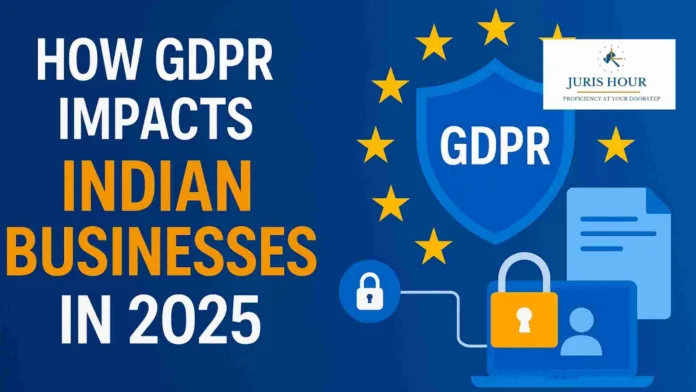The General Data Protection Regulation (GDPR), implemented by the European Union (EU) in May 2018, remains one of the most stringent data privacy laws globally. Even as we advance into 2025, its influence continues to extend far beyond Europe’s borders, notably impacting businesses operating in India. As Indian companies increasingly engage in cross-border trade, offer digital services, or process data of EU citizens, understanding GDPR compliance has become crucial—not only for legal adherence but also to safeguard brand reputation and customer trust.
What is GDPR and Why Should Indian Businesses Care?
GDPR establishes a comprehensive framework governing the collection, processing, storage, and transfer of personal data of EU residents. The regulation’s extraterritorial scope means that any Indian company offering goods or services to individuals in the EU, or monitoring their behavior (e.g., through website tracking), falls within its ambit.
Key GDPR principles include:
- Lawfulness, fairness, and transparency
- Purpose limitation
- Data minimization
- Accuracy
- Storage limitation
- Integrity and confidentiality
- Accountability
Non-compliance can result in penalties of up to €20 million or 4% of global annual turnover—a significant risk for Indian businesses operating internationally.
Major GDPR Impacts on Indian Businesses in 2025
Enhanced Data Subject Rights
Indian businesses must now enable and efficiently manage requests from data subjects based in the EU regarding:
- Access to personal data
- Data portability
- Rectification and erasure (Right to be forgotten)
- Objection to processing
Companies must implement transparent processes to address such requests within one month, often requiring significant operational changes.
Stricter Consent Mechanisms
Obtaining valid consent remains one of the biggest challenges. In 2025, Indian businesses cannot rely on vague, pre-ticked boxes or general terms. Consent must be:
- Freely given
- Specific
- Informed
- Unambiguous
This necessitates revisiting website forms, app permissions, and data collection processes, ensuring clarity and compliance.
Data Protection by Design and Default
Indian companies must now adopt a proactive approach toward data protection. From product development to service delivery, privacy must be embedded at every stage. This requires:
- Regular data protection impact assessments (DPIAs)
- Encryption and pseudonymization techniques
- Data minimization practices
Appointment of Data Protection Officers (DPOs)
For businesses that process large-scale personal data or handle sensitive categories of data, GDPR mandates the appointment of a Data Protection Officer (DPO). Indian companies offering digital services to EU residents are now increasingly appointing qualified DPOs to:
- Monitor compliance
- Train staff
- Serve as a point of contact for supervisory authorities
International Data Transfers
GDPR restricts the transfer of personal data outside the EU unless adequate protection is ensured. In 2025, Indian businesses handling such transfers must:
- Implement Standard Contractual Clauses (SCCs)
- Rely on Binding Corporate Rules (BCRs)
- Ensure explicit consent where applicable
A clear data transfer strategy is essential to avoid legal pitfalls.
Why Compliance is Not Optional: Business Implications
- Reputational Damage: Non-compliance can severely damage brand reputation and erode customer trust, especially in data-sensitive sectors like fintech, healthcare, and e-commerce.
- Operational Disruption: Supervisory authorities are now more proactive, and GDPR fines are not hypothetical anymore. Several European companies have already been fined millions of euros in recent years.
- Competitive Advantage: GDPR compliance builds trust and positions a business as data-responsible, appealing to European customers and partners.
Practical Steps for Indian Businesses to Stay GDPR Compliant in 2025
- Conduct a thorough data audit
- Update privacy policies with clear GDPR language
- Implement robust consent management solutions
- Set up mechanisms for data subject requests
- Establish records of processing activities (ROPA)
- Train staff regularly on GDPR compliance
- Review and revise third-party contracts
- Appoint a qualified Data Protection Officer (DPO)
Conclusion
Even in 2025, GDPR remains highly relevant for Indian businesses engaging with the EU market. Compliance is no longer a one-time effort but an ongoing process involving technological, organizational, and legal alignment. Businesses that fail to prioritize GDPR risk hefty fines, reputational loss, and strained EU partnerships.
Stay ahead of the curve by integrating data protection practices now. Ensuring GDPR compliance not only avoids penalties but reinforces your brand’s credibility in the global digital economy.
Read More: Customs TVM Zone Foils Major Smuggling Attempts: Gold, Cigarettes, and E-Cigarettes Seized

